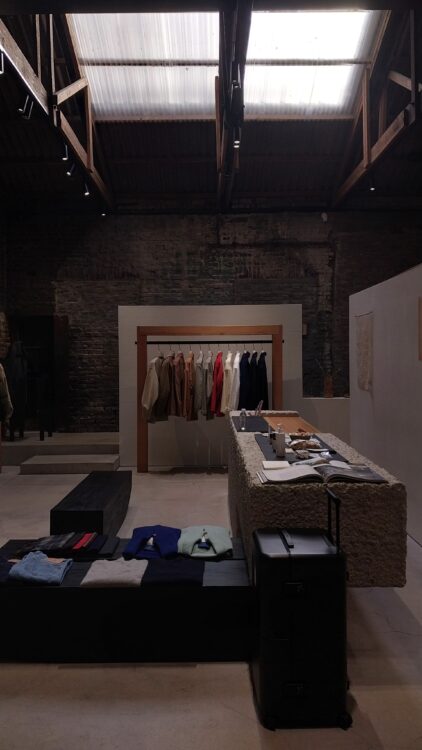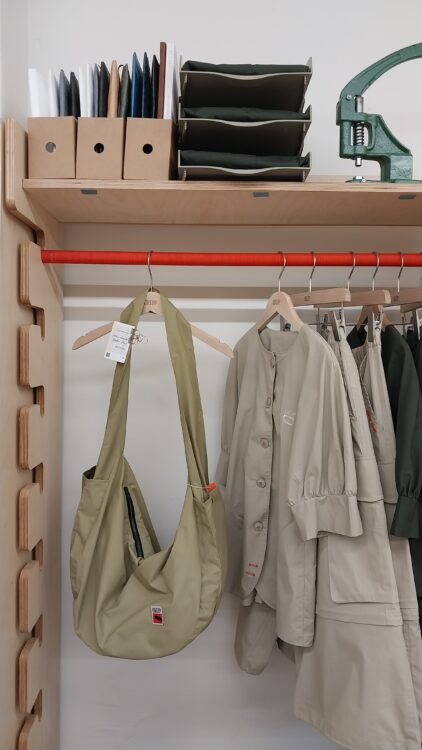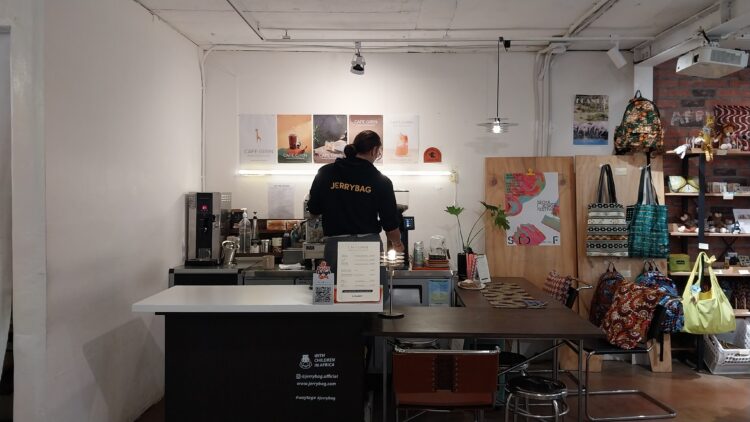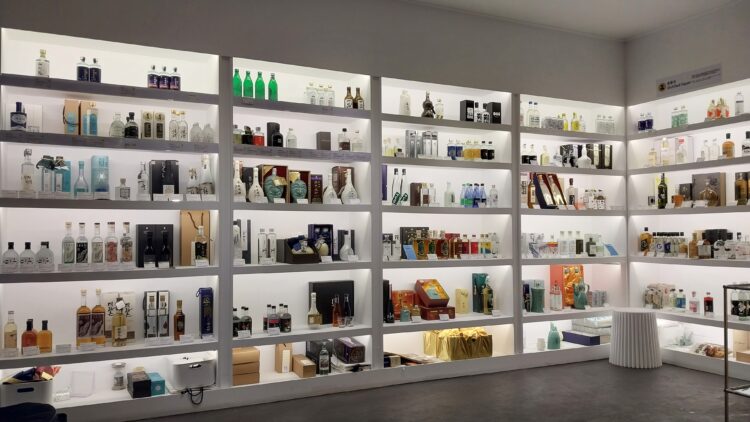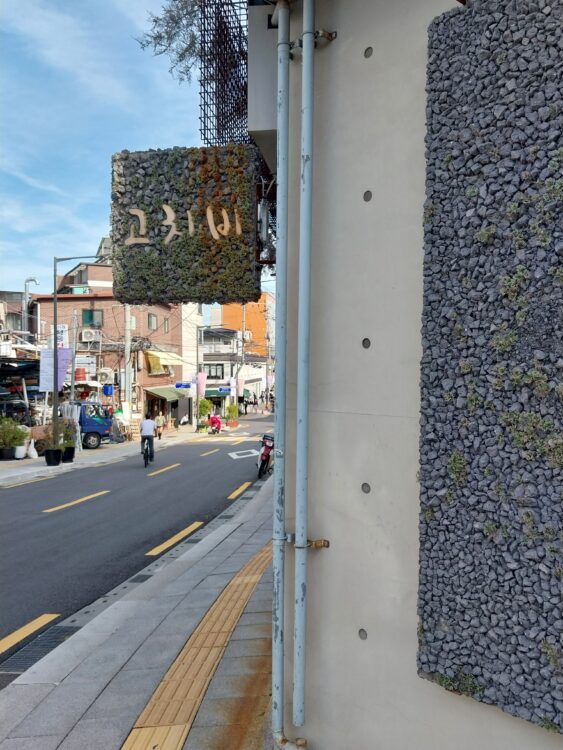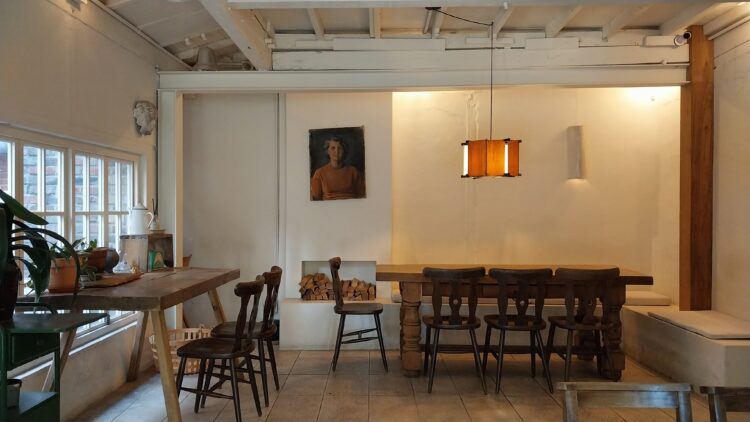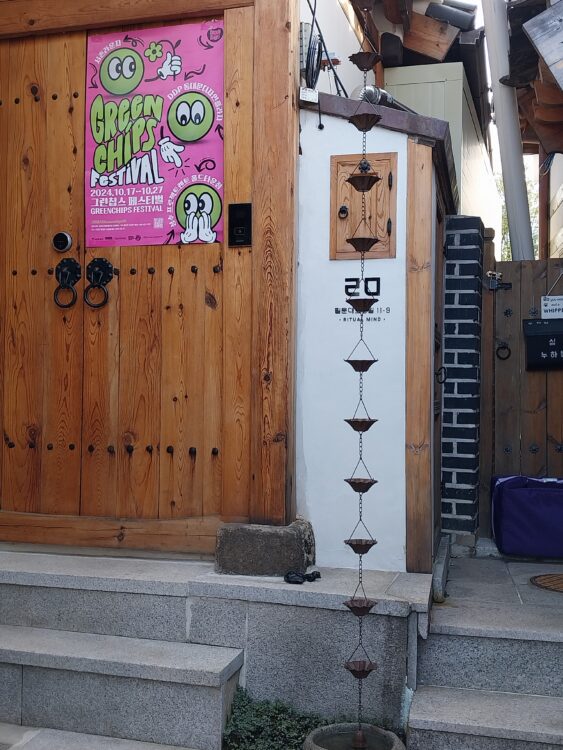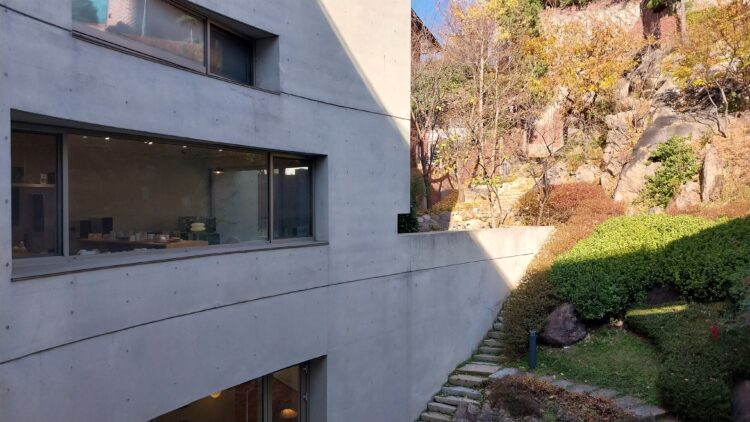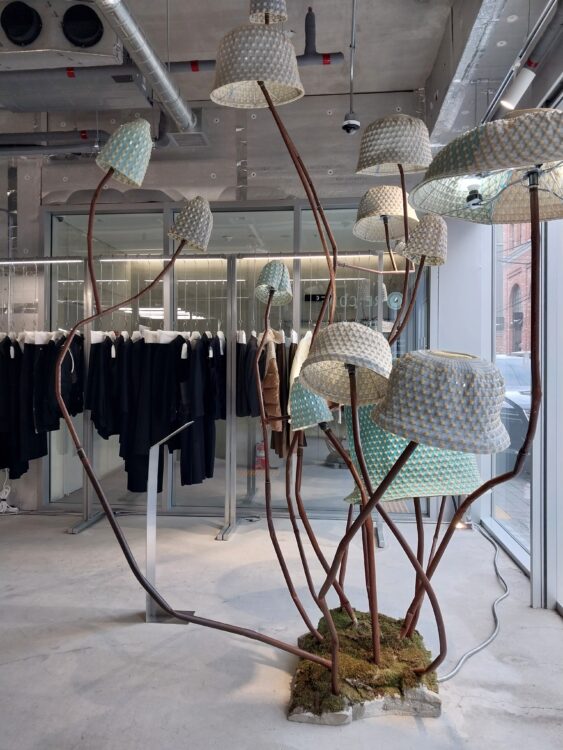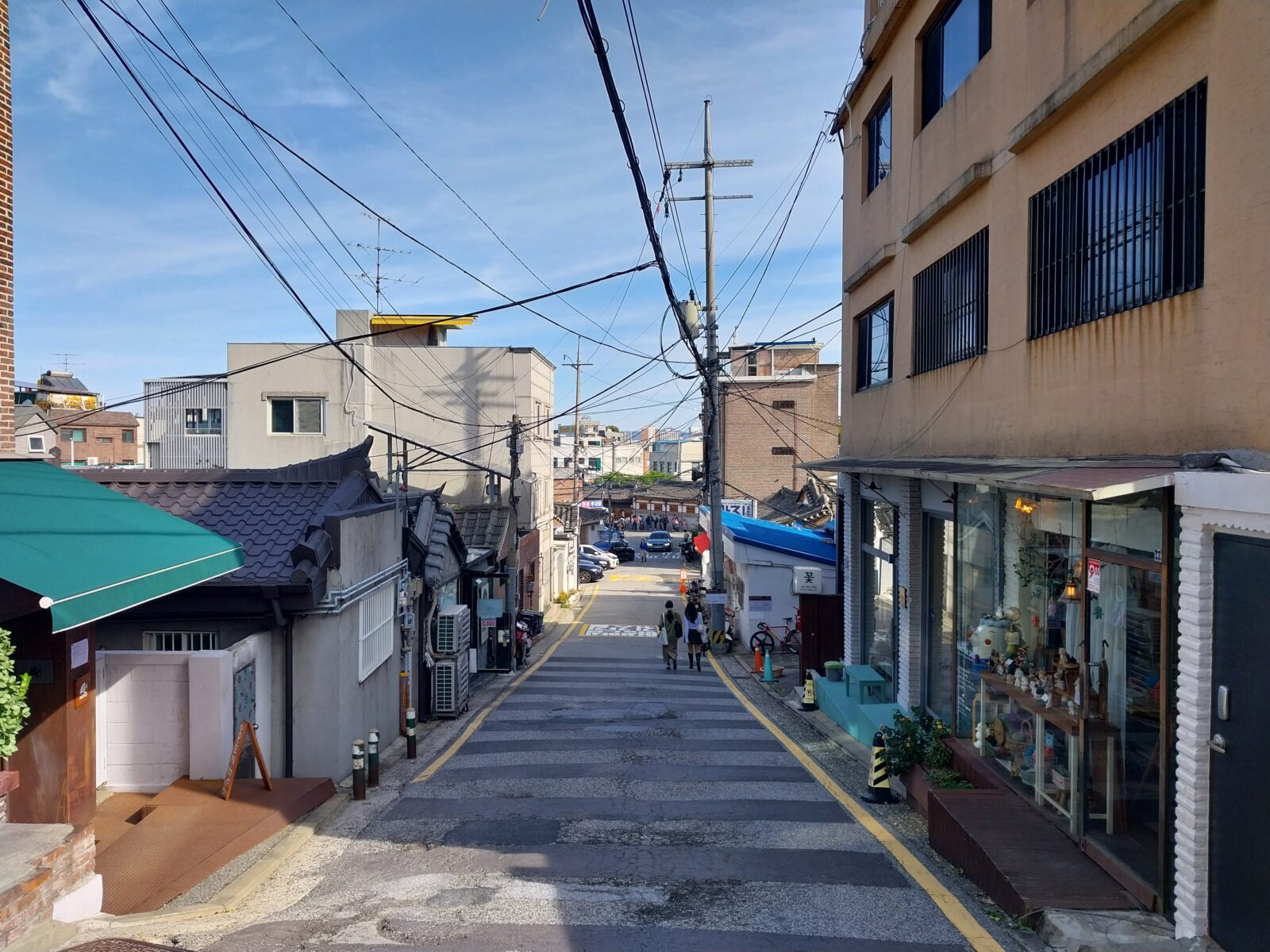
DOCUMENT
Our Seoul adventure, spanning 12 hours, commenced in Seongsu-dong. Once a bustling industrial hub, this area has transformed into a haven for artistic spirits. Amidst the alleys, where auto repair shops and printing presses still hold sway, DOCUMENT, a fashion label celebrating its 10th anniversary, quietly settled. Behind a solid black gate, the former powder paint factory still retains its charm. Jong-soo Lee, the visionary Founder, and Creative Director, stated, “As soon as I saw the large, abstract paint marks on the wall, it reminded me of Mark Rothko, and I intended for it to look like his chapel, blending in with the natural light partly filtering through the ceiling.” To truly resonate with the brand, we need to understand the concept of ‘Difference and Repetition’ by Gilles Deleuze. This philosophy is woven into every aspect of DOCUMENT, from each garment to the space itself, investigating the subtle nuances of design. The signature ‘indigo navy’ hue, a constant in evolving collections, mirrors Lee’s steady and introspective approach. The 20th series of documentary films, screened in the space, further emphasizes the brand’s affinity for timeless design and quiet contemplation. In this way, DOCUMENT was more than just an RTW label, it was a journey of self-discovery.
CUECLYP
CUECLYP, a stone’s throw from the Seongsu metro station, is redefining fashion through the lens of sustainability. A glance at its Instagram reveals the brand’s ability to capture the essence of Seoul’s contemporary aesthetic. The name itself, a clever rearrangement of ‘UPCYCLE,’ hints at its core philosophy, rebirth and renewal. “Our odyssey began in 2016 with a novel approach, repurposing discarded umbrellas and transforming their robust waterproof textiles into stylish pouches, celebrating their unique physical properties,” said Director Yeon-jeong Woo, who majored in fashion design and has an innate sense of invention. “Our goal is to continuously evolve, pushing the boundaries of upcycling.” While the brand has previously celebrated the inherent aesthetic qualities of waste materials, such as their patterns and colors, It is currently embarking on the development of new materials utilizing waste-derived materials. “Notably, we have recently created CIRCLYP, a mind-blowing textile extracted from discarded city banners.” This recycled polyester embodies the brand’s commitment to circularity and marks its upcoming 10th anniversary with groundbreaking innovations. Woo’s devotion to sustainability and her deep-seated conviction are infectious, “True success is making this world better than before we were born.”
JERRYBAG S*PLANET
Located near the serene Seoul Forest Park, adjacent to the buzzing Seongsu, visitors are drawn inside by a towering giraffe soft toy to discover JERRYBAG, a social enterprise committed to enhancing pedestrian safety for children in Uganda. CEO and Co-founder Joong-yeol Park shared his inspiring path, “After majoring in Creative Sustainability from Aalto University, I yearned to make a tangible impact in the developing world. A short-term project with UNICEF in Uganda sparked a connection with the country, and I was fortunate to meet a supervisor from Uganda.” Witnessing the challenges faced by rural communities, particularly the arduous task of fetching water, he conceived a durable, locally sourced tarpaulin ‘JERRYCAN BAG’ for Jerrycans. This advanced solution not only eases the burden of water transportation but also serves as a versatile school bag, incorporating reflective materials for improved safety. Recognizing the broader needs of children, especially those lacking essential educational resources, he is currently exploring ways to boost the educational value of these bags further. This decade-strong brand, JERRYBAG, has unveiled a Sustainable Design Center (SDC) in Kampala, complementing its Seoul showroom. This new venue exemplifies the brand’s dedication to a circular economy, forging an unexpected bridge between continents.
SOOL DANGDANG
When a gentle rain draped the Seoul Forest, a thirst-quenching beacon emerged, Sool Dangdang. The name itself, a playful nod to Korea’s rich drinking culture, promised an unforgettable memory. Descending a flight of stairs, one entered a cosy hideout, a treasure trove of over 300 traditional liquors. Brilliant brothers and Sool Dangdang Co-founders, Chi-seung and Chi-ho Kim explained, “Surrounded by nature’s lush canvas, this spot is the perfect place to sip, relish, and convey the story behind our naturally fermented liquors.” The shop curates diverse traditional liquors, offers innovative cocktails, and hosts engaging workshops for locals and international visitors. Overseas travelers can easily bring home their brews, thanks to the sturdy containers specially designed for fermentation. As it turned out, Kim’s mother is a renowned national traditional liquor sommelier, and her homebrewing rituals, filled with fragrant aromas, ignited his passion for Korean liquor from a young age. He recommended an enthralling brew, Dudumulmul – a revival of the Joseon Dynasty’s Hosanchun – from SOOBLEGA. “Its alluring aromas and flavors are exquisite, so precious to be swallowed!” Sool Dangdang was a cultural destination that celebrated the artistry and heritage of Korean liquor.
KOCHIBI
After indulging in a delightful liquor, I turned my attention to satiating my appetite. To travel back in time, I ventured to Seochon, a historic neighbourhood west of Gyeongbok Palace. Drawn to the striking signage of KOCHIBI, a fusion Jeju-Italian osteria, I stepped inside. The title signifying “the Ko family” in the Jeju dialect, is the brainchild of Owner Chef Myung-hoon Ko, a 20-year culinary veteran hailing from the picturesque island of Jeju. “Following gaining experience at top-rated Italian restaurants, I yearned to create something unique, drawing inspiration from my Jeju roots.” The intimate restaurant, accommodating a maximum of 16 guests, exudes the rustic charm of Jeju’s volcanic landscape. The star of the venue is the KOCHIBI Risotto, a reimagining of Momguk – Jeju’s specialty dish of pork backbone broth and sargassum fulvellum. It strikes a harmonious balance of textures, combining a rich, creamy risotto infused with various cheeses and topped with a fennel seed-marinated Jeju black pork slab. Other must-try specialties include Jeju tilefish steak served with celeriac purée and hazelnuts, and gently grilled Jeju octopus dressed with a Champagne shallot vinaigrette. Ko eagerly looks forward to opening the next chapter of his culinary empire in the next few years with new concepts inspired by his beloved hometown.
EARTH US
Subsequent to a satisfying meal, a pause for coffee and dessert is a cherished routine. An old building stood out in a quiet Seochon alleyway with its exotic appearance, one of the few remaining Japanese-style houses, it was built in the 1930s. “I used to post my ‘home cafe’ video clips on social media and enjoyed sharing my thoughts with others. My content gained popularity, and I naturally opened ‘the first Korean zero-waste cafe’ 7 years ago. This is the third branch,” mentioned Hyun-hee Kil, an insightful representative. A sweet escape and a leader in sustainable practices, Earth Us is changing the game for cafe-goers. Customers are encouraged to bring their reusable containers and tumblers for takeout, and even tissues are replaced with handkerchiefs. Although she has sacrificed some daily convenience, she has never compromised on the quality of the menu and visitor satisfaction. The cafe’s focus on eco-awareness is evident in every detail, from the rustic ambiance to the thoughtfully curated, wittily titled, and Instagrammable menus, including fig yogurt and Yakgwa cakes. Hyun-hee dreams of a future where conscious consumption is the norm. The recent book, ‘Courageously earth us,’ motivates readers to build a more green lifestyle.
RITUAL MIND
Hidden at the end of Seochon’s labyrinthine lanes, Ritual Mind emerged as an oasis of tranquillity. Its weathered facade concealed a sanctuary of serenity. Upon removing one’s shoes in this restored Hanok – a traditional Korean house – a realm of mindfulness unfolded, featuring meticulously arranged meditation tools, calming aromas, and bonsai trees whispering ancient wisdom. Co-founders and the young couple, Grace Choi, an innovator of ‘Korean Sound Therapy,’ and Sang-hyun Lee, an Interior Architect and Branding Expert, run an attentive meditation brand embodying their philosophy, ‘Ease the body, soothe the mind.’ “Meditation,” explained Grace, “is a voyage of inward discovery, all about cultivating a profound connection to the self. With the constant barrage of external stimuli in our lives, self-care becomes more crucial than ever.” The resonant Half Gong, its form mirroring the lotus bloom, was custom-made in Italy; the ethereal Full Moon Singer Bowl, crafted exclusively during full moons in Nepal; the enchanting Koshi Chime from France and the Nut Chime from Indonesia complete this spellbinding soundscape. Beneath the open sky, outdoor sessions awaken the senses, while sound bath ceremonies wash away the stresses of the day. Having found how carefully orchestrated sounds can promote relaxation and rejuvenation, I headed towards our final destinations, concluding an energetic half-day.
DOTEON
Seeking to extend the tranquility fostered by Korean therapy, I made my way to Pyeongchang-dong, an affluent neighborhood brimming with galleries and art museums, nestled beneath the gaze of Bukhan and Bukak Mountain. Within this enclave, I discovered doteon, a ceramic studio and high-end speaker showroom, a jewel tucked away within the elegance of Mimesis Art House, an architectural masterpiece by Jun-sung Kim. Founder and Ceramist, Hye-min Park, a native of this district, expressed a deep affection for the peaceful environment. “I envisioned a space where the art of ceramics could flourish in harmony with the quietude of this special setting,” she remarked. Beyond standard and intensive ceramic classes, doteon uniquely integrates the celestial melodies of music with the tactile art of ceramics, creating a multi-sensory experience. The space doubles as a curated gallery, showcasing Park’s notable collections, including ‘Layer Series,’ alongside exceptional pieces by other artists. The studio, with its expansive windows capturing the ever-changing scenery, was as comfortable as a home. “I am planning to curate a wider range of works by delicate Korean craftspeople so that people can encounter craft in their daily lives,” she asserted with vigorous enthusiasm.
RE;CODE Cheongdam Flagship Store
Before bidding farewell to Seoul, a pilgrimage to Cheongdam-dong, the city’s sartorial sanctuary, is indispensable. Here, amidst a constellation of luxury boutiques, stands RE;CODE Cheongdam Flagship Store, opened in 2023. Established by KOLON – a titan of the Korean textile industry – RE;CODE is a conscious social movement that has championed mindful consumption since 2012. The brand crafts idiosyncratic collections that harmonize style with sustainability by breathing new life into discarded inventory from KOLON’s esteemed fashion houses. This commitment extends beyond the atelier, encompassing collaborations with designers and artists, the innovative upcycling workshop RE;TABLE, and the deeply personal redesign service MOL (Memory of Love). The RE;CODE flagship itself serves as a powerful embodiment of this ethos. Industrial aesthetics seamlessly blend with unforeseen details such as recycled newspaper pulp, traditional roof tiles, and reclaimed wood sourced from old houses. A curated exhibition of works by Korean artist Sang-min Oh further enriches the visitor’s enjoyment. His installation, ‘Soil to Soul,’ employed Heracron®, a high-performance aramid fibre specializing in safety and protection and produced by KOLON INDUSTRIES. The artist sought to demonstrate the worth and benefits of high-tech materials by expressing the functional narrative of industrial materials as a fantastic object. This dynamic space is where fashion smoothly intersects with art and sustainability, a must-visit for those seeking a wardrobe that authentically reflects their individuality and values.
Photos : Seoung-joo Yoo
Text : Seoung-joo Yoo
